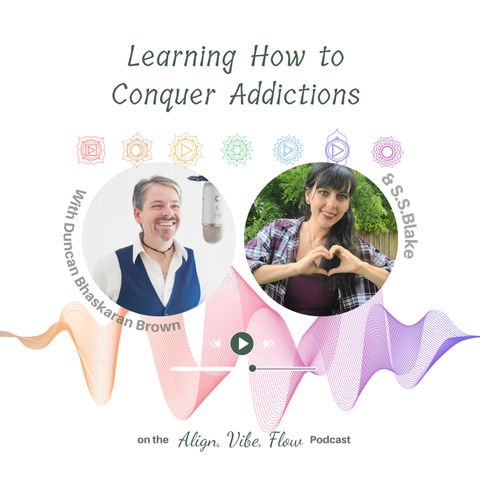How to Conquer Addictions

Apr 9, 2024 ·
1h 1m 42s
Culturally, we think that we need to ‘stop’ doing the things that we’re already doing in order to obtain a goal that we have. Human’s brains aren’t wired for that...
show more
Culturally, we think that we need to ‘stop’ doing the things that we’re already doing in order to obtain a goal that we have. Human’s brains aren’t wired for that to be easy, though. Stopping something is hard and stressful for most of us.What we should be doing instead is ‘start doing’ the things we would like to replace those undesirable habits with. This inevitably ‘crowds out’ that which isn’t serving us and leaves only that which is in alignment with our true desires. This can be equated to any habits and intentionally and purposefully choosing our habits is exactly how we create new ones that help us reach our desired outcomes.Most everyone try to start with the action of the habit and trying to change it. A better starting place would be with the belief systems around the action.
About Our Guest
Duncan Bhaskaran BrownSpeaker. Author. Morris Dancer. www.BhaskaranBrown.comSome people say that Duncan can help you to go beyond alcohol. But that isn’t it. Duncan will help you increase your energy, power up your productivity, improve your relationships and enjoy the heck out of life.After 20 years of overdoing it, he cleaned up his act and trained with the world’s most successful stop smoking service. But that wasn’t enough. He studied at Cornell University, the Chartered Management Institute and in a windowless room in Peterborough. But that wasn’t enough.He wrote a couple of books, most recently ‘Real Men Quit’, the armchair macho guide to beating booze and finding the life you want. But that wasn’t enough. He’s started interviewing the sober superstars and conducting research projects which involved watching TV. But that wasn’t enough.What would be enough? Maybe if alcohol-free was the default, if sober was the new normal and if alcohol stops destroying people. Maybe then Duncan will sit down with a mint tea and sci-fi novel and relax. Maybe.
show less
- Why are you continuing to choose this habit?
- What do you believe it’s doing for you?
- When or where did this stem from? Where’s the root?
About Our Guest
Duncan Bhaskaran BrownSpeaker. Author. Morris Dancer. www.BhaskaranBrown.comSome people say that Duncan can help you to go beyond alcohol. But that isn’t it. Duncan will help you increase your energy, power up your productivity, improve your relationships and enjoy the heck out of life.After 20 years of overdoing it, he cleaned up his act and trained with the world’s most successful stop smoking service. But that wasn’t enough. He studied at Cornell University, the Chartered Management Institute and in a windowless room in Peterborough. But that wasn’t enough.He wrote a couple of books, most recently ‘Real Men Quit’, the armchair macho guide to beating booze and finding the life you want. But that wasn’t enough. He’s started interviewing the sober superstars and conducting research projects which involved watching TV. But that wasn’t enough.What would be enough? Maybe if alcohol-free was the default, if sober was the new normal and if alcohol stops destroying people. Maybe then Duncan will sit down with a mint tea and sci-fi novel and relax. Maybe.
- Instagram: https://www.instagram.com/soberwarriorcoach/
- LinkedIn: https://www.linkedin.com/in/duncanbhaskaranbrown/
- Facebook: https://www.facebook.com/BhaskaranBrown
- Website: https://www.bhaskaranbrown.com/
- Amazon: https://amzn.to/4aoXvQf
- Listener freebie: https://www.getover.uk
Information
| Author | Savannah Blake |
| Website | - |
| Tags |
Copyright 2024 - Spreaker Inc. an iHeartMedia Company
